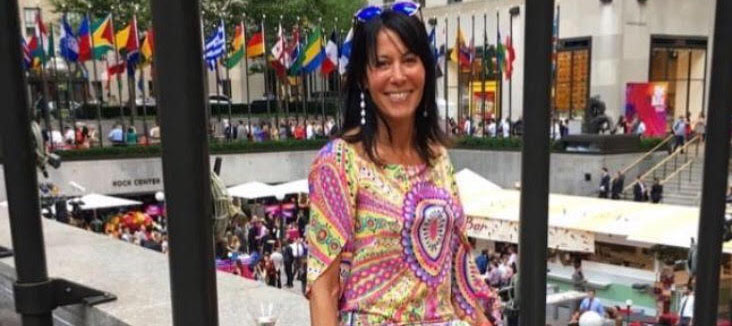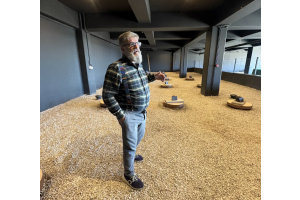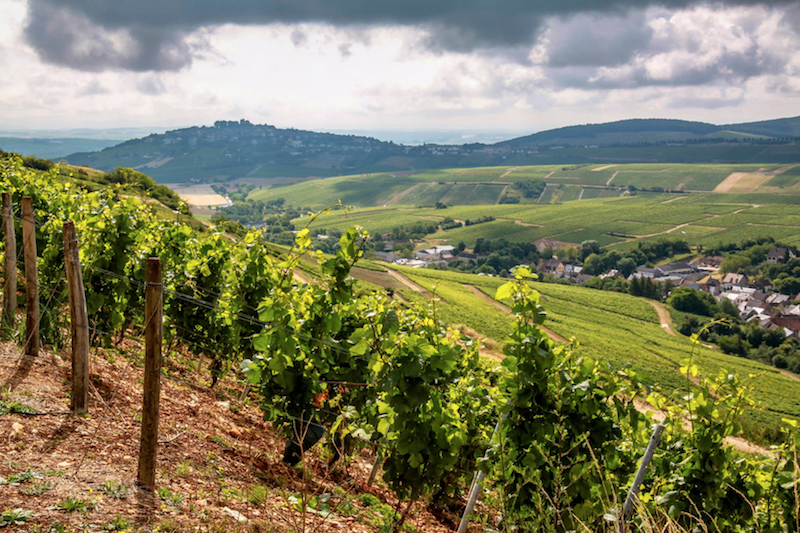
Pascal Jolivet’s family has been in the wine business throughout the Loire Valley since the early 1900s but their name was never on a label as the producer until Pascal, the third generation, started the ‘Pascal Jolivet’ brand in 1987, with the first released vintage in 1991. The desire to create pure, terroir-driven wines through biodynamic and organic farming and a philosophy of using low-intervenion winemaking techniques makes Pascal a pioneer of natural winemaking in Sancerre and Pouilly-Fumé. Only a few years after his first wines were released, the white 1995 Sancerre was included in the prestigious annual list of the Wine Spectator Magazine’s Top 100 wines. Today, open the wine list of any Michelin-starred restaurant in Paris or around the world and chances are you will find one of his wines on it.
Grape Collective caught up with Pascal by email to talk about his process of creating some of the most respected Sancerre and Pouilly-Fumé wines.
Lisa Denning: What is your philosophy and style of winemaking?
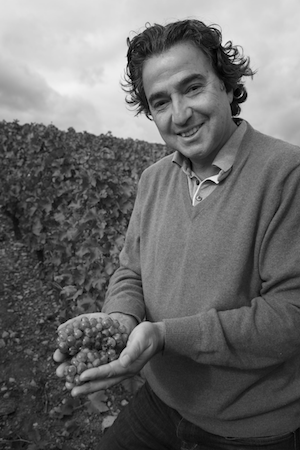 Pascal Jolivet: I started winemaking doing the opposite of what I was supposed to do, using no sulphur or a very low level before fermentation and no enzymes to clarify the juice, and no additional cultured yeast to activate the fermentation. I shared this philosophy with our first winemaker Jean Luc Soty and, more recently, with our current winemaker Valentina Buoso who researched and studied indigenous yeasts before joining the company in 2013. The idea was all about common sense in opposition with the new technical vinification in the 1990s. We use mechanical intervention with cold temperatures instead of chemical intervention to keep the juices very natural.
Pascal Jolivet: I started winemaking doing the opposite of what I was supposed to do, using no sulphur or a very low level before fermentation and no enzymes to clarify the juice, and no additional cultured yeast to activate the fermentation. I shared this philosophy with our first winemaker Jean Luc Soty and, more recently, with our current winemaker Valentina Buoso who researched and studied indigenous yeasts before joining the company in 2013. The idea was all about common sense in opposition with the new technical vinification in the 1990s. We use mechanical intervention with cold temperatures instead of chemical intervention to keep the juices very natural.
White wines from both Sancerre and Pouilly Fumé are made from 100% Sauvignon Blanc. What are the overall differences between your wines made from these two appellations?
Our Sancerre is in majority coming from Chalky soil, about 50%, giving the wines body, creaminess and a citrus taste. Our Pouilly Fumé, grown in 50% flint (Silex) has more minerality and grapefruit aromas.
Your vineyards are farmed organically and biodynamically. Can you tell us a bit more about it and how these approaches to winemaking contribute to the authenticity of your wines?
After having this natural philosophy of winemaking during more than 20 years, it was logical to think about organic viticulture. We did experiment with the first Sancerre wine “Sauvage" in 2006 and it was a revelation and we decided to go further with no filtration. In 2016, we decided to move to 100% organic vineyard asking the Dauny family, pioneers of organic viticulture in Sancerre 50 years ago, to take care of our 50 hectares in Sancerre and Pouilly-Fumé.
Let’s talk about creativity in winemaking. Do you consider yourself an artist with your medium being the making of wine?
I consider that I do the winemaking the same way I am in life, with instinct, taking a little bit of risk to be different. I am personally extremely inspired with everything I feel and see around me.
Your wines are on the lists of several restaurants all around the world, many of them Michelin-starred. How were you able to achieve that in a relatively short amount of time?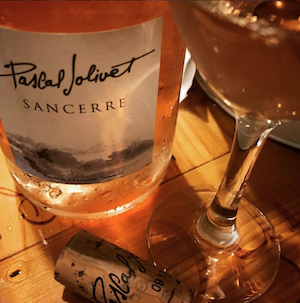
Listing Jolivet wines in the best restaurants was a marketing strategy to get a position and recognition in Loire Valley wines and Sauvignon Blanc in general. I tried to meet many star Michelin chefs and asked our sales team and importers to convince the sommeliers of best restaurants to list Jolivet wines. I also personally love natural and fresh food like all the members of the Jolivet family, including not only my father and grand father but all my kids. Having my wines in the best restaurants all over the world is not only business, it's a real pleasure.
What do you like to drink when you’re not drinking your own wines?
I don’t drink hard alcohol. I love the finesse of Pinot Noir and Chardonnay from Burgundy. I also enjoy Cote Rôtie and Syrah from Rhône Valley which gives so much energy. A great Champagne, especially a Blanc de Blancs is always the best idea to start a dinner or to celebrate an event. As you can see I like French wines.
Is there anything else important that was not covered that we should know about your wines?
My wines express the fruits with a great integration of acidity. Drinking them gives you pleasure with no feeling of alcohol. They are extremely natural and drinkable.
